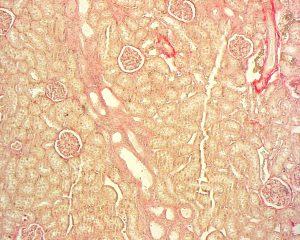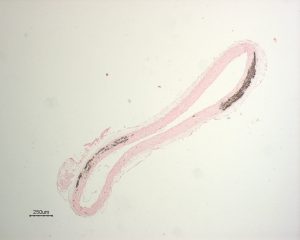The kidney plays a central role in the maintenance of the integrity of the internal milieu necessary for the proper functioning of all cells composing the organism, mainly by the filtration of blood (passage of molecules with a molecular weight <68 kDa at the glomerulus) and by the regulated reabsorption of molecules along the tubules. The kidney is an organ essential for the regulation of phosphocalcic metabolism and therefore bone metabolism, notably because of its implication in vitamin D maturation and by the regulation of the elimination of calcium and phosphorus. Due to its endocrine functions, it also plays an essential role in the control of blood pressure and the stimulation of erythropoiesis. The absence of renal function makes it impossible for the body to maintain the volemia and homeostasis of many molecules, as well as an inability to eliminate metabolic end products (uremic toxins). The mechanisms linking uremia, disturbances in phosphocalcic metabolism, dialysis therapies and, on the other hand, cardiovascular diseases or mortality are only partially understood.
The basic research axis is led by Dr. Nathalie Gayrard and Dr Angel Argilés. The projects developed include :
- Study of the pathophysiology of renal failure
- Characterization of inhibitors of vascular calcification
- Characterization of the mechanisms involved in renal fibrosis
Techniques : in vivo models, ex vivo models, cell models.




